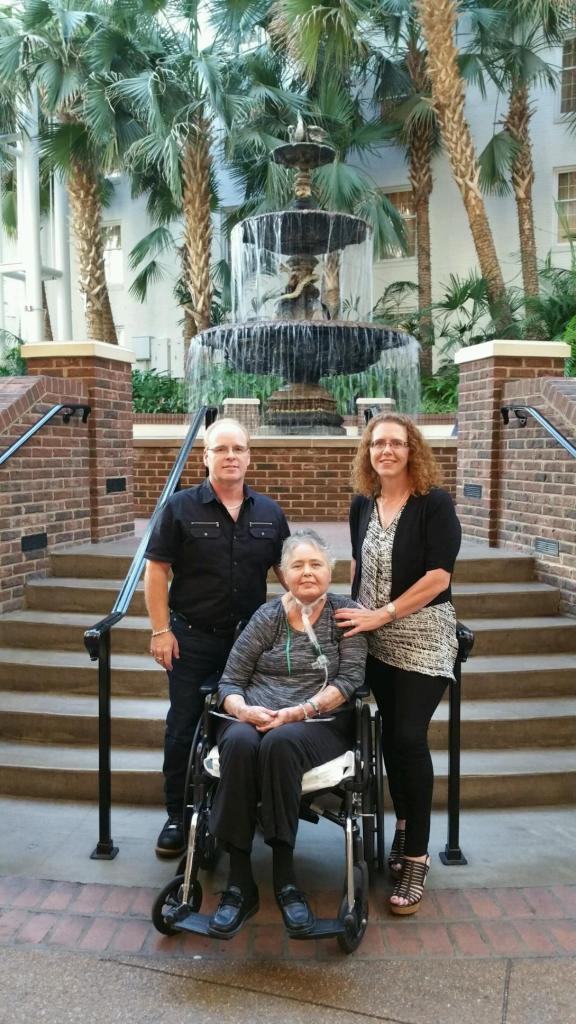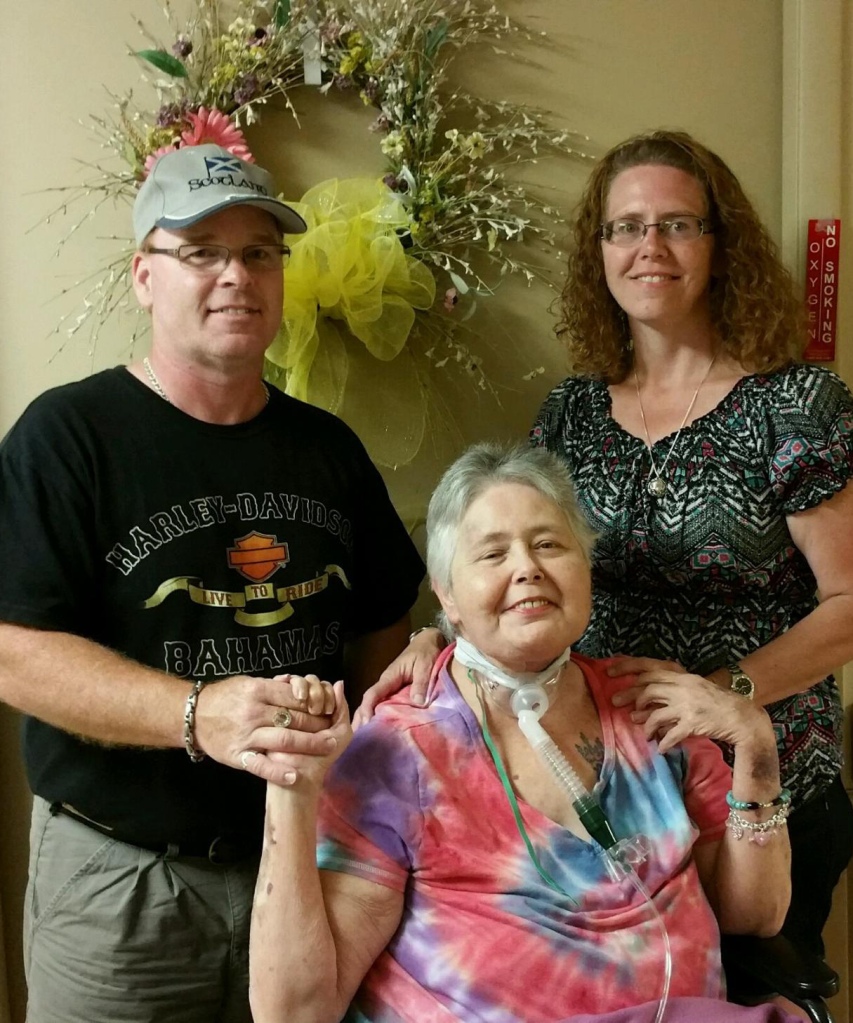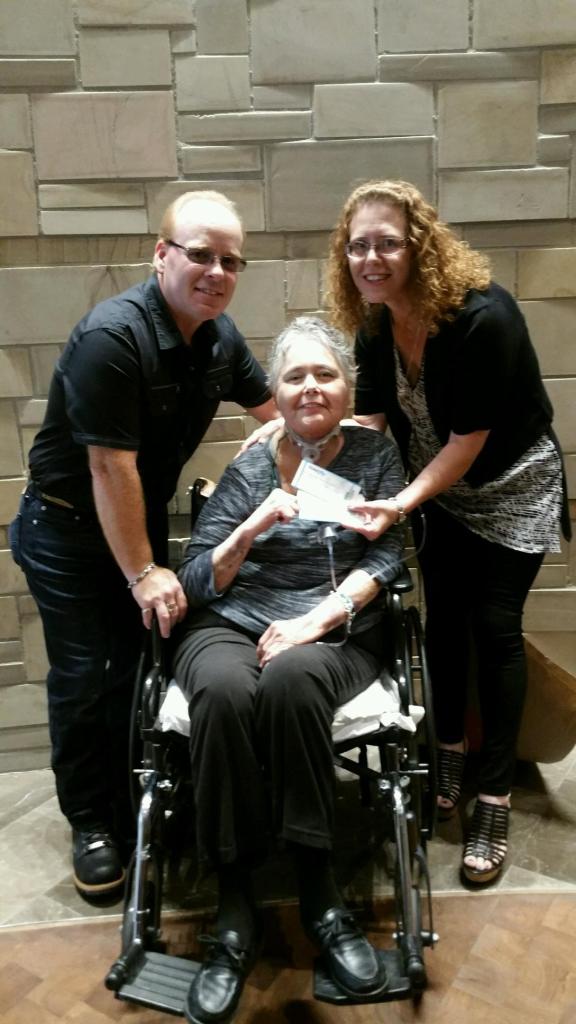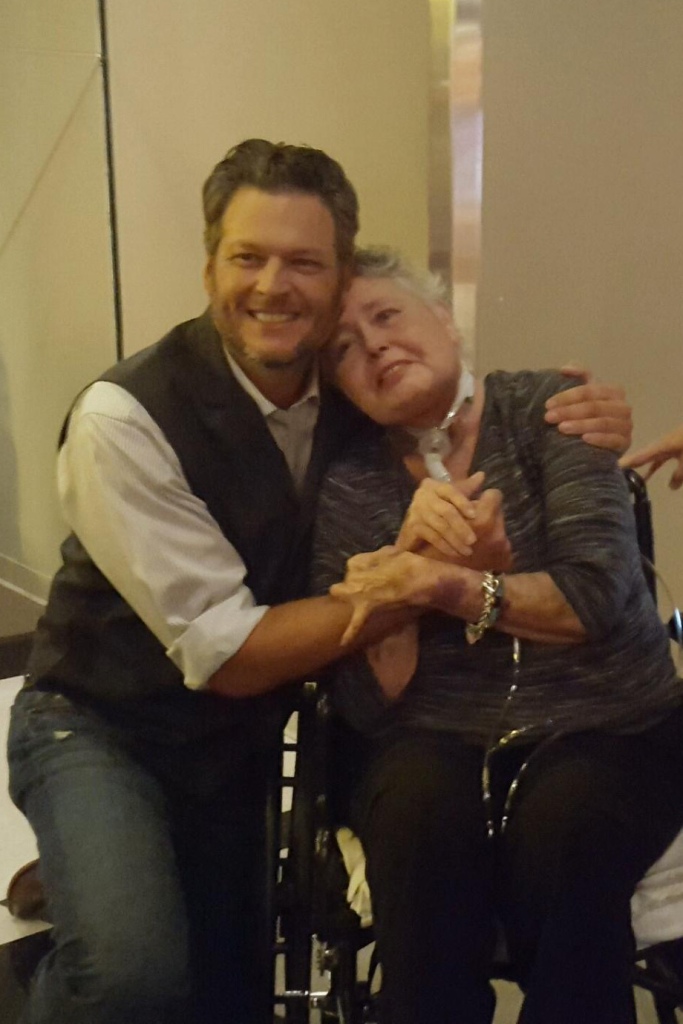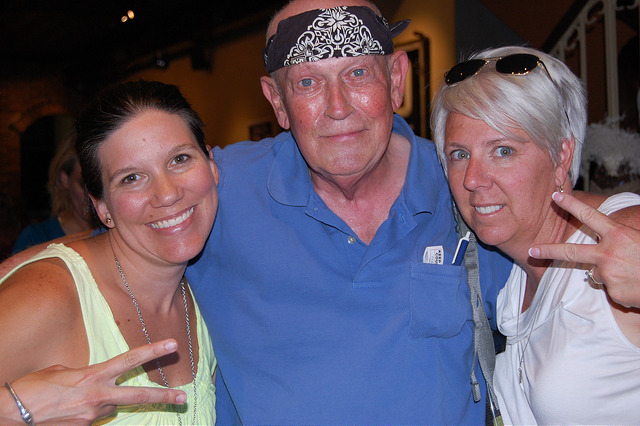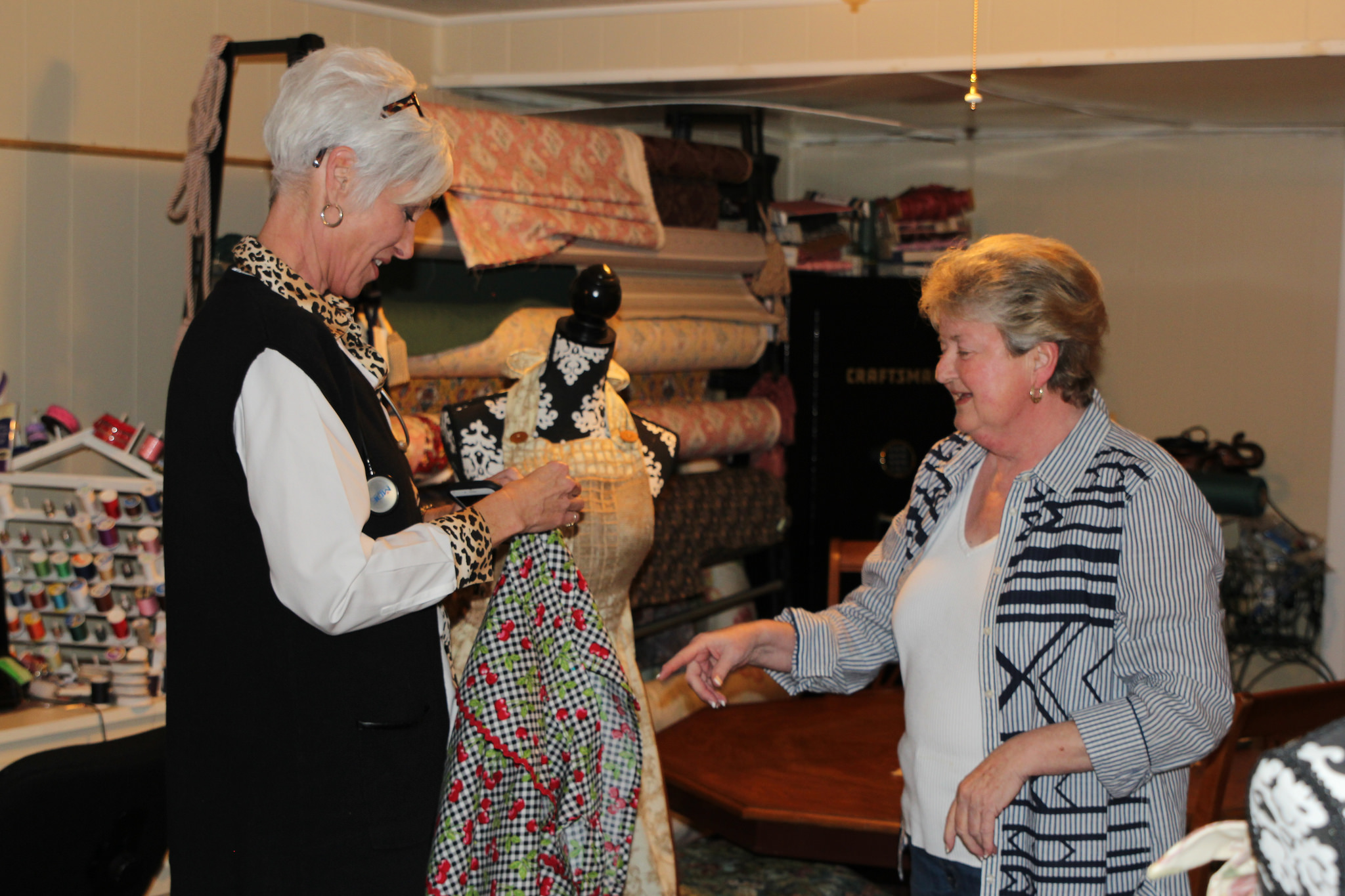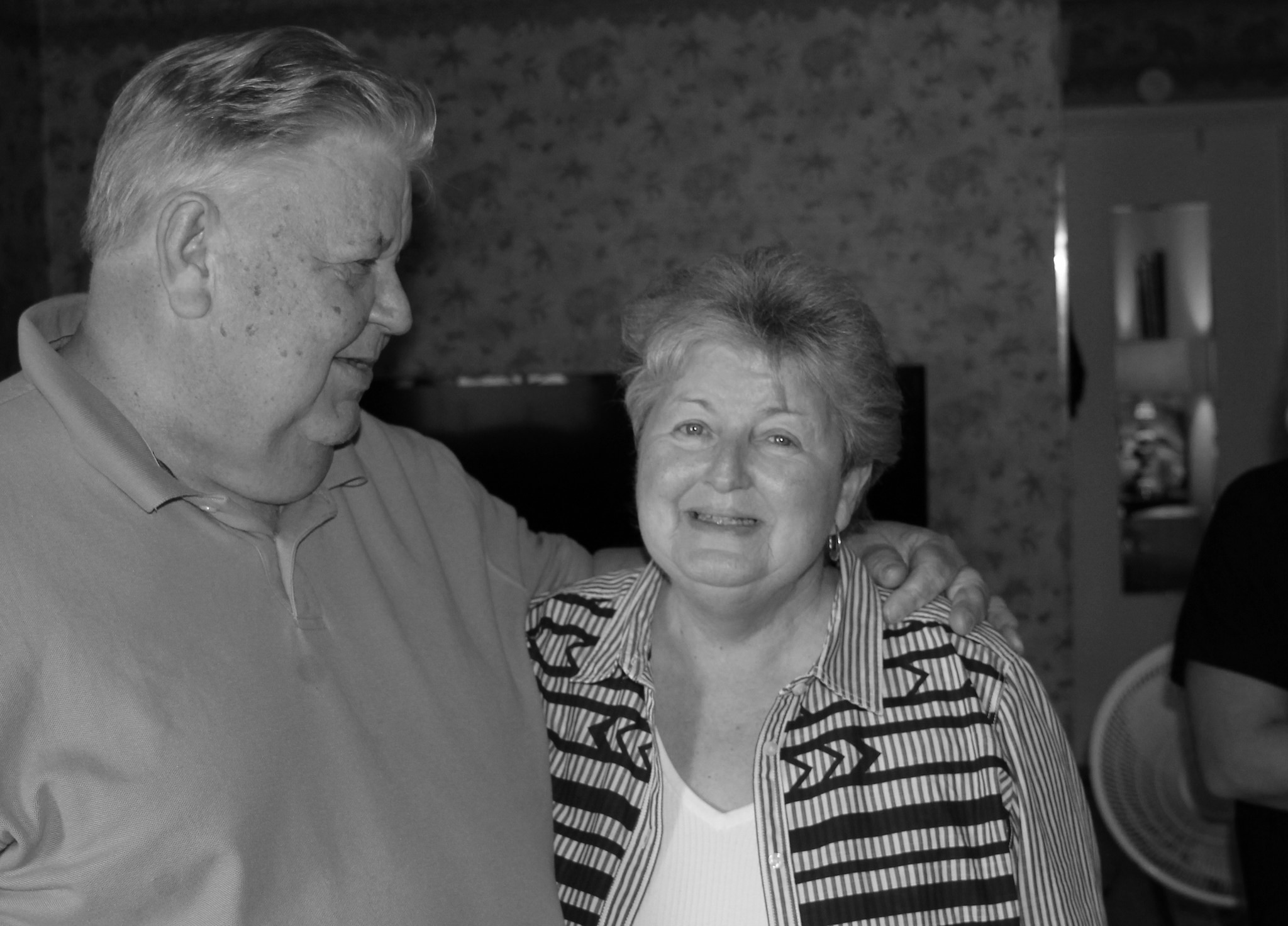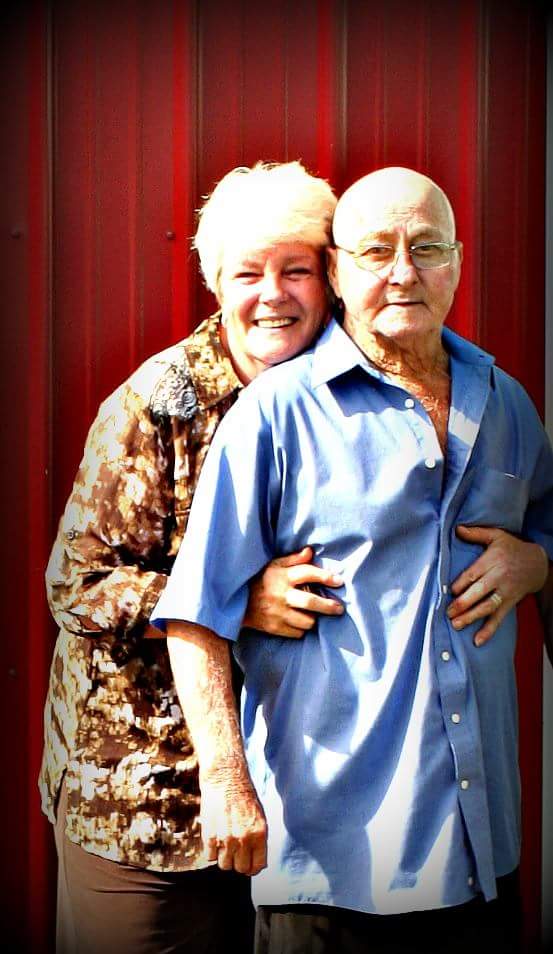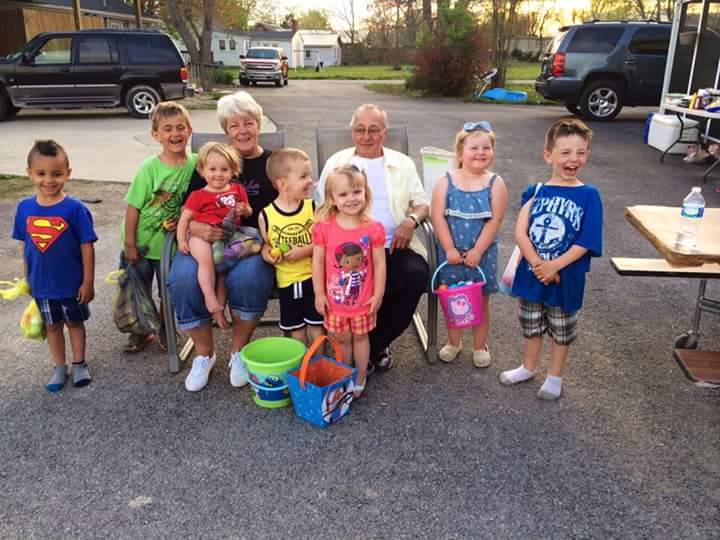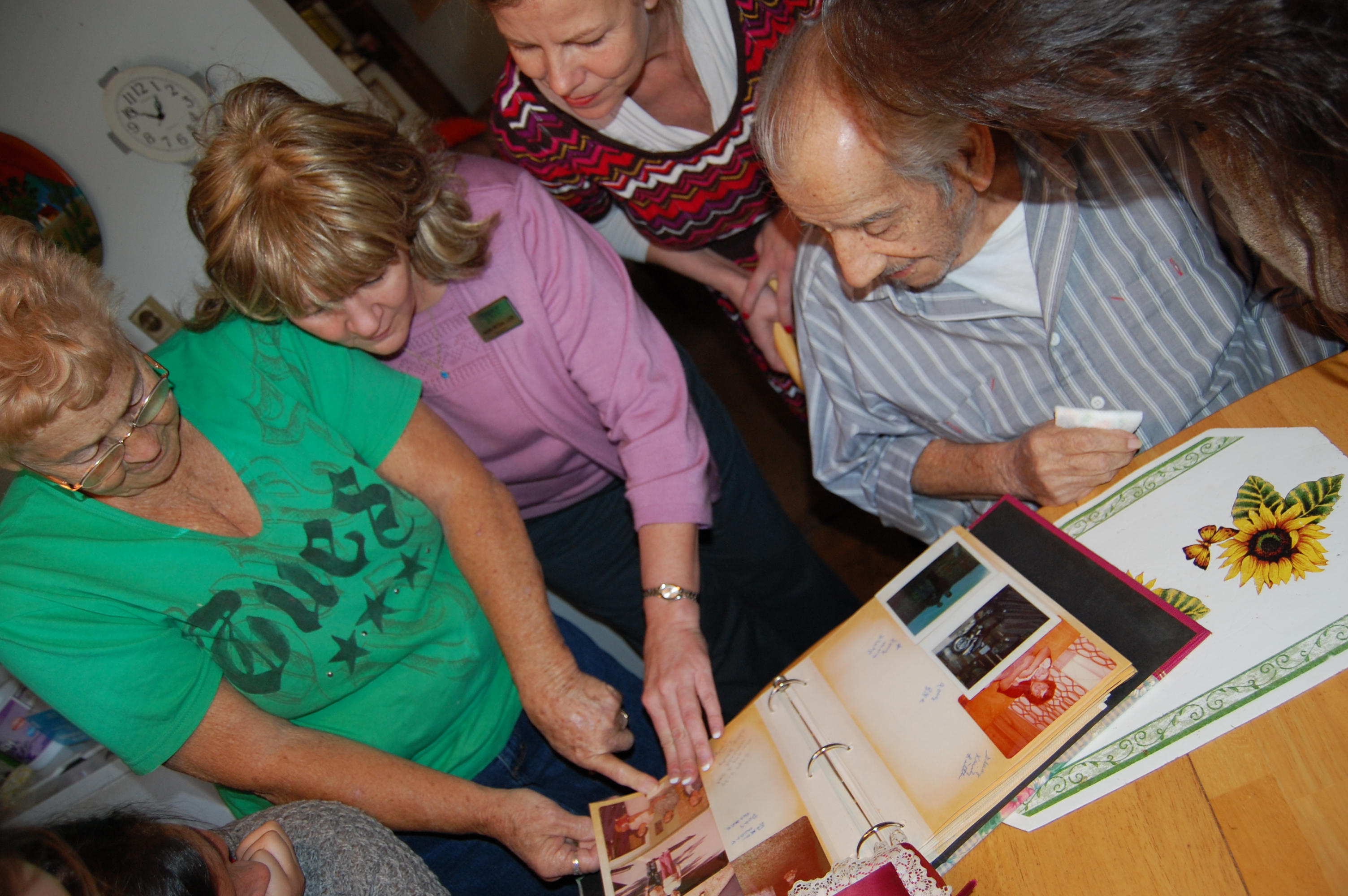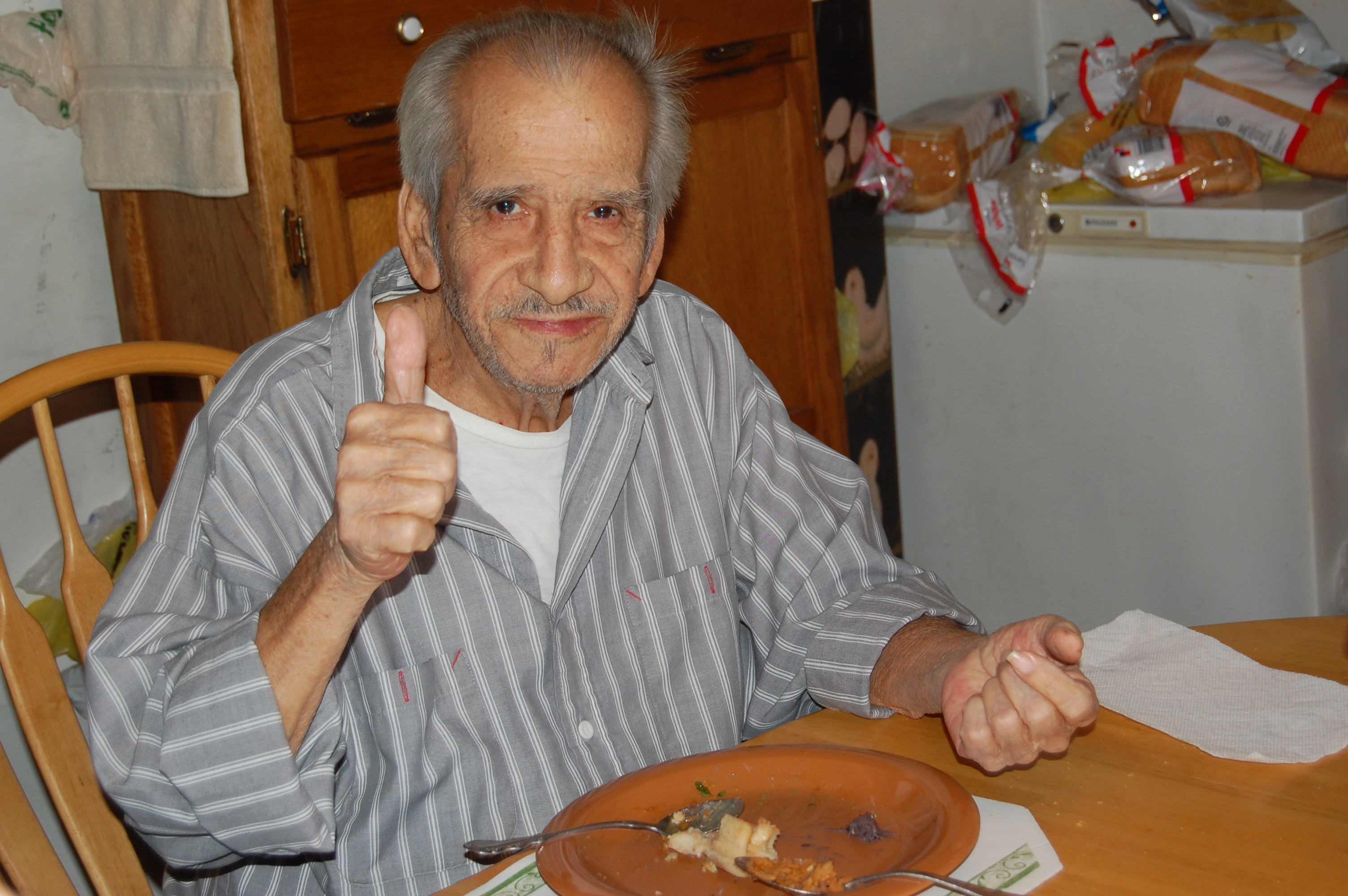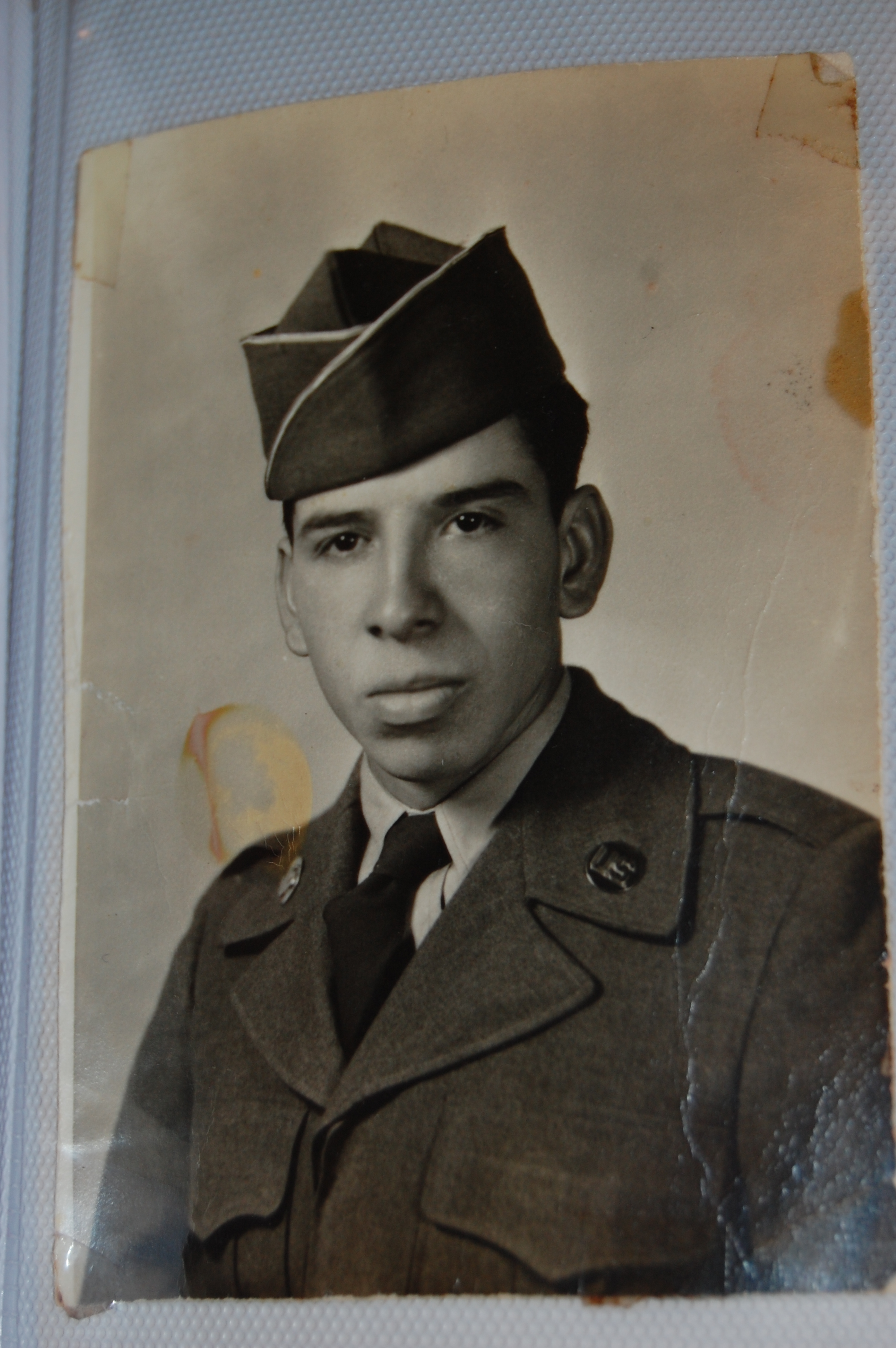Our stories about meaningful experiences are written as they unfold. Therefore, most stories are in the present tense. Some of the patients in these stories are no longer with us. They, and their families, gave us permission to share their experience with you. For those who have since passed, we share these in their memories with deep appreciation for what they have taught us about life and living.
June 6, 2016, was a magical day for Hospice Care Plus patient, Brenda Roberts.
She was in the audience to see one of her favorite people, Blake Shelton, perform at the Country Music Hall of Fame CMA Theater in Nashville. She was treated to the performance by us and by Madison Health and Rehabilitation Center (MHR) in Richmond, KY, who partnered to secure three tickets for her, her daughter Dreema (a nurse), and her son-in-law.
Brenda is from Cynthiana, KY, but is currently a resident at MHR. Our care teams partners with MHR to provide her care.
On May 23, Brenda, who has cancer of the larynx, and Dreema met with Hospice Care Plus admission nurse Dorsie Puckett to learn more about hospice care.
“We were sitting there, and she was upset and tearful,” says Dorsie. “I could see she felt that choosing hospice meant giving up and just waiting for the end. I wanted her to turn her focus to hope and to living, so I asked her if there was anything we could do for her, anything special that was important to her that she really wanted to do. That’s when Dreema mentioned that Brenda loves Blake Shelton. Brenda, who has a tracheotomy and is unable to speak, whispered very softly to me, ‘Yes, I do. I’m not a great country music fan, but I think he’s the most handsome man in the whole world and it would make my life to get to see him.’”
Dorsie explained that she would do her best, then immediately worked with her team and the rest of the Hospice Care Plus staff to see what could be done. After some research, we learned of an upcoming performance at the intimate CMA Theater at the Country Music Hall of Fame & Museum in Nashville. We secured affordable tickets and booked a stay at The Capitol Hotel, which offered a discounted rate. Brenda couldn’t physically endure a round trip to Nashville without a two-night stay to help her rest and recover. MHR shared a portion of the ticket cost with us and the family agreed to share the cost of the hotel.
Our team then worked quickly to gather the medical equipment Brenda would need for a long drive and two nights away from her facility: a portable suction machine, 12 e-tanks for portable oxygen, a wheelchair-mounted carrier for the e-tanks, an adequate supply of all her medications, and numerous routine medical supplies.
While these logistics were being taken care of, our staff decided to take things one step further and attempt to arrange a backstage meeting with Mr. Shelton. We worked on contacting Blake Shelton’s managers and fan club. When those calls and emails weren’t returned, we launched a social media campaign to ask for help. Several old and new friends and followers had connections they thought could make this happen for Brenda, but it was a long process and an even longer shot.
When June 5 came, the day before the concert, Brenda was doing well and was able to travel. She and her family left for Nashville. On the morning of June 6, the day of the performance, we still had no way of knowing if our social media campaign had worked. While we were aware that one high-level industry executive promised to work on it and that several managers were favorable to the request, no one had contacted us.
When Brenda’s family texted us to say they made it and were inside the venue, our entire Hospice Care Plus staff celebrated that Brenda was about to see her wished-for concert, but we were also a little disappointed. It was assumed that, if anything special had been planned for Brenda, it would have been made clear to them when they presented their tickets. Nothing had happened.
By the time the performance began an hour later, we were certain that a meeting with the superstar wasn’t, well, in the stars.
“I was texting two supporters who had worked incredibly hard to make it happen,” says Brenna Wallhausser, director of public relations at Hospice Care Plus. “I was preparing them for the fact that it wasn’t going to happen, but also thanking them and reassuring them that Brenda would not know any disappointment. She didn’t know we were trying for the meeting. We agreed not to tell her, because we didn’t want to risk a letdown. We wanted her to feel nothing but joy at seeing him live in concert.”
Then, ten minutes into the performance, Brenna received an email from Berkley Myers with Starstruck Management Group in Nashville, asking us to call her as soon as possible. Brenna called immediately.
“When she told me to text the family to ask them to remain in their seats after the performance, I knew what it meant. I was elated,” says Brenna.
Ms. Myers went on to explain that someone with the Country Music Hall of Fame would go to the family’s seats and escort them backstage to meet with Mr. Shelton.
For the next few hours, Brenna and others waited patiently for word from Dreema. It came at 6:30 p.m. when she texted the photograph of her mother with Blake Shelton.
“When I saw it, I thought that it captured how special all of this was for Brenda,” says Brenna. “It was easy to see the joy on her face. Surprisingly, it also seemed to catch how special it was for Blake Shelton.”
That joy stayed with Brenda. When Dorsie saw her at MHR again on June 8 for her hospice nursing visit, Brenda was still radiating happiness.
“The look on her face when I saw her . . . She looked at me and . . . I cried. She held her arms out wide to me and said, ‘Thank you all. Thank you all. Thank you all.’”
As for the details of the meeting with Blake Shelton, Dreema reports that it was beyond anything they could have expected.
“Everyone was so kind, and Blake Shelton was amazing,” she says. “He hugged her over and over. He held onto her and rubbed her shoulder. He held her hand. He kissed her on the cheek and let her do the same. She mouthed the words, ‘I love you. I have cancer.’ He told her he knew, and he just hugged her.”
In a Facebook post to thank everyone involved, we made sure to thank Blake Shelton for his graciousness. “You not only agreed to meet her, but you made her feel cared for, special, and welcome. You gave her joy. Anyone can agree to a backstage meeting, but not just anyone can achieve that.”
How can you honor life during National Hospice & Palliative Care Month? Visit the #WeHonorLife campaign page to learn about all the ways you can help, from volunteering and shopping to helping us increase access to specialized care for the seriously ill and their families. Questions? Contact us at hospice@hospicecp.org or 859-986-1500 or visit our website.

